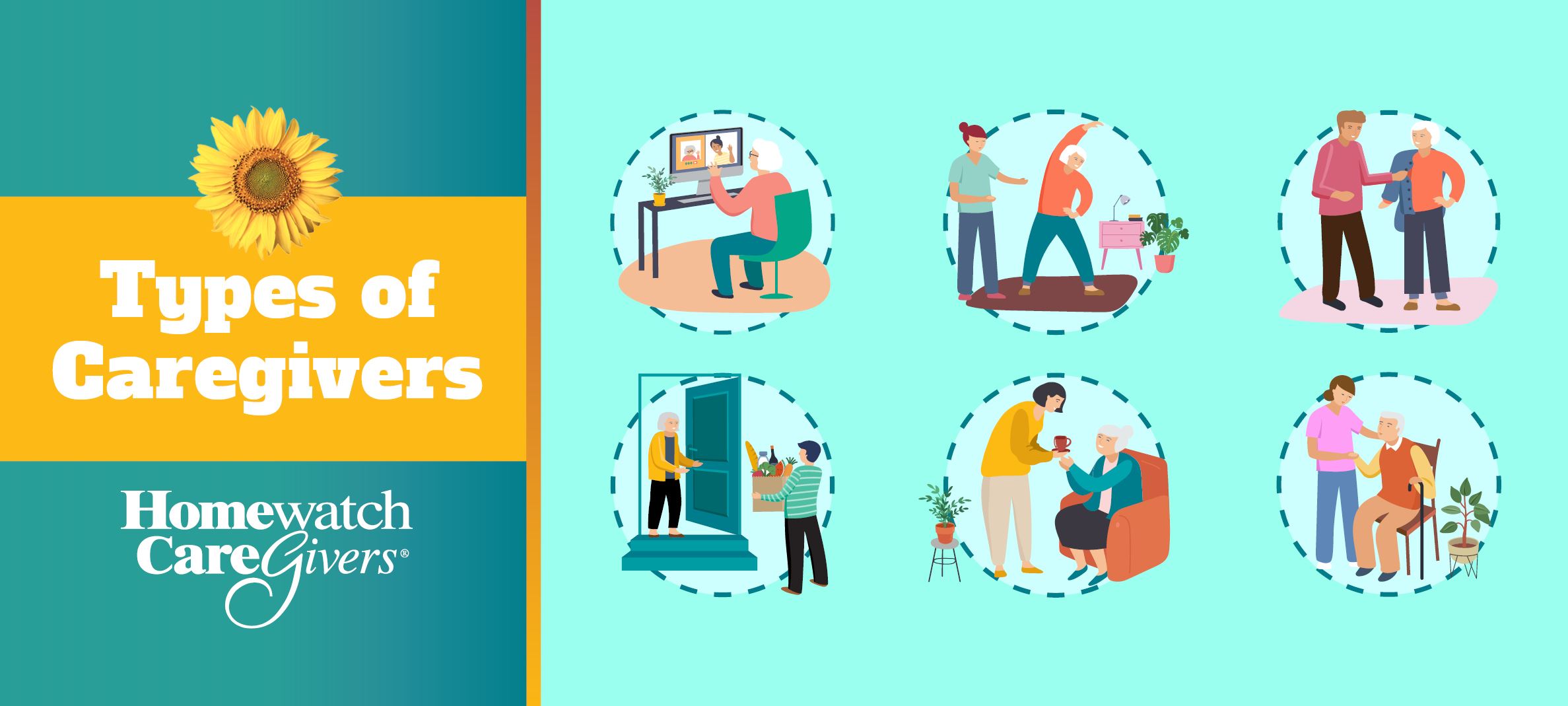Home care is not just one thing, but instead an umbrella term under which there are many types of care for many different types of needs and people.
Types of care might overlap during delivery of services. There is usually one specific reason though that someone calls requesting home care and that is why we have different types of care listed on the website.
Here are the top five types of care that people are usually searching for when they call a home care agency:
Elder Care—It’s a fact of life that as we age, our abilities change. Each person is unique so these changes could be anything from diminished eyesight or hearing to developing a chronic condition that impairs mobility. What defines being an elder? Usually this means someone over the age of 65 years “young.” Elder care (also called Senior Care) is another big term that might include companion care, assistance with meal preparation, light housekeeping, help with safely bathing and dressing, and transportation to medical appointments. Like all home care, this can fluctuate depending on needs and availability of family support. One person might need 24/7 care whereas someone else might just need a few hours per week.
Respite Care—Around the world, caregiving is largely done by volunteers, family and friends who step in to help loved ones with a few things…at first. As illness progresses or abilities or symptoms change, the care need can expand and go beyond what an untrained family member can do for their loved one. Respite Care could also be called “Take a Break Care” or “Self Care” because it’s really about allowing another caregiver—a spouse, an adult child or grandchildren, a neighbor—to do less caregiving for either a short time (maybe a weekend getaway) or on a consistent basis. Many of the tasks a caregiver does for Respite Care will vary depending on the individual.
Chronic Conditions Care or Dementia Care—The benefit of hiring a professionally-trained caregiver is that they can learn specific techniques to use in caring for people who living with certain chronic conditions. In other words, not all care needs are the same. The Homewatch CareGivers University offers online training for family and professional caregivers so that care can be customized. Caring for someone who is living with multiple sclerosis is very different than care for someone who is living with dementia in the middle stages. Some people have multiple chronic conditions that may require help with medication management, for example. Others may need assistance with eating safely or getting out of a chair or bed without risk of injury.
Personal Care—In any given day, a healthy and able-bodied person may take for granted all that they can do for themselves. Simply getting out of bed and walking to the bathroom is something that a person living with a chronic condition may struggle with at times. Personal care might include help with getting on and off the toilet, walking, bathing, dressing, grooming, and more. Some of these tasks are the kind that a family may just not be comfortable doing for their elder parent or loved one, or they may not feel skilled enough to perform the task safely for both parties.
After Surgery Care—After a hospital discharge, either from an outpatient surgery of a few hours or an extended stay for a more complicated procedure, someone may need help to recover at home. In many instances, the home care can be planned ahead of time before the surgery, but in other scenarios there is no plan in place until the person gets home. Things like medication reminders, mitigating fall risks, and getting to follow-up appointments can be key to not being readmitted. This care may only be needed for a few hours, a single 24-hour care shift, or for several weeks.
A well-matched client and caregiver may also develop a close bond as routine tasks are carried out so that home care also becomes a way to alleviate feelings of loneliness and boredom for someone who needs assistance.




